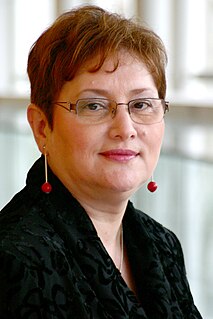Related Research Articles

A constitutional monarchy is a form of monarchy in which the sovereign exercises authority in accordance with a written or unwritten constitution. Constitutional monarchy differs from absolute monarchy for which constitutional monarchs are bound to exercise their powers and authorities within limits prescribed within an established legal framework. Constitutional monarchies range from countries such as Liechtenstein, Monaco, Morocco, Jordan, Kuwait and Bahrain, where the constitution grants substantial discretionary powers to the sovereign, to countries such as the United Kingdom, the Netherlands, Spain, Belgium, Sweden, Malaysia and Japan, where the monarch retains significantly less personal discretion in the exercise of their authority.
Alexander Andrew Mackay Irvine, Baron Irvine of Lairg, known as Derry Irvine, is a Scottish lawyer, judge, and political figure who served as Lord Chancellor under his former pupil barrister, Tony Blair.

Albert Venn Dicey (1835–1922), usually cited as A. V. Dicey, was a British Whig jurist and constitutional theorist. He is most widely known as the author of Introduction to the Study of the Law of the Constitution (1885). The principles it expounds are considered part of the uncodified British constitution. He became Vinerian Professor of English Law at Oxford, one of the first Professors of Law at the London School of Economics, and a leading constitutional scholar of his day. Dicey popularised the phrase "rule of law", although its use goes back to the 17th century.
Sir Royston Miles "Roy" Goode is an academic commercial lawyer in the United Kingdom. He founded the Centre for Commercial Law Studies at Queen Mary, University of London. He was awarded the OBE in 1972 followed by the CBE in 1994 before being knighted for services to academic law in 2000.
John Maurice Kelly was an Irish Fine Gael politician who served as Minister for Trade, Commerce and Tourism from 1981 to 1982, acting Minister for Foreign Affairs from June 1981 to October 1981, Attorney General from May 1977 to July 1977 and Government Chief Whip from 1973 to 1977. He served as a Teachta Dála (TD) for the Dublin South-Central from 1973 to 1977 and for Dublin South from 1977 to 1989. He was a Senator for the Cultural and Educational Panel from 1969 to 1973.

The Supreme Court is the final court of appeal in the United Kingdom for civil cases, and for criminal cases from England, Wales and Northern Ireland. It hears cases of the greatest public or constitutional importance affecting the whole population, including disputes relating to devolution.

John Mitchell Finnis, is an Australian legal philosopher, jurist and scholar specializing in jurisprudence and the philosophy of law. He is currently the Biolchini Family Professor of Law at Notre Dame Law School and Permanent Senior Distinguished Research Fellow at the Notre Dame Center for Ethics and Culture. He was Professor of Law & Legal Philosophy at the University of Oxford from 1989 to 2010, where he is now professor emeritus. He acted as a constitutional adviser to successive Australian Commonwealth governments in constitutional matters and bilateral relations with the United Kingdom.

Vernon Bernard Bogdanor is a British Research Professor at the Institute for Contemporary British History at King's College London and Professor of Politics at the New College of the Humanities. He is also Emeritus Professor of Politics and Government at the University of Oxford and Emeritus Fellow of Brasenose College, Oxford.
Kenneth Donald John Macdonald, Baron Macdonald of River Glaven, Kt, QC is a British lawyer and politician who served as Director of Public Prosecutions (DPP) of England and Wales from 2003 to 2008. In that office he was head of the Crown Prosecution Service. He was previously a Recorder and defence barrister. He is currently Warden of Wadham College, Oxford and a life peer in the House of Lords, where he sits as a crossbencher and was previously a Liberal Democrat.
David Philip Pannick, Baron Pannick, QC is a leading barrister in the United Kingdom, and crossbencher in the House of Lords. He practises mainly in the areas of public law and human rights. He has argued cases before the Supreme Court of the United Kingdom, the Appellate Committee of the House of Lords, the European Court of Justice, and the European Court of Human Rights.
Mads Andenæs QC is a legal academic and former UN special rapporteur on arbitrary detention and the chair of UN Working Group on Arbitrary Detention. He is a professor at the Faculty of Law of the University of Oslo, the former director of the British Institute of International and Comparative Law, London and the former director of the Centre of European Law at King’s College, University of London.
Keith D. Ewing is professor of Public Law at King's College London and co-author of two of Britain's leading textbooks in constitutional and administrative law, and labour law.

Renate Weber is a Romanian lawyer and human rights activist who, in November 2007, was elected as Member of the European Parliament. She is the first Romanian appointed as Chief of an EU Election Observation Mission. Between 2004 – 2005 she was Advisor on constitutional and legislative matters to the President of Romania. She is currently the People's Advocate of Romania.

Sandra Fredman FBA, QC (hon) is a Professor of Law in the Faculty of Law at the University of Oxford and a Fellow of Pembroke College, Oxford.

The Constitution of the United Kingdom or British constitution is the system of rules that decides the political governance of the United Kingdom of Great Britain and Northern Ireland. Unlike in most countries, such as the US, it is not codified into a single document. Thus, it is known as an uncodified constitution. This enables the constitution to be easily amended as rules are not entrenched. However, the Supreme Court of the United Kingdom recognises that there are constitutional principles, including parliamentary sovereignty, the rule of law, democracy and upholding international law.
Satvinder Singh Juss Ph.D (Cantab) FRSA, is a Professor of Law at King's College London, UK and a Barrister-at-Law of Gray's Inn, London, UK. He has published widely on the subjects of migration and human rights law.
Parliamentary sovereignty in the United Kingdom is a concept central to the functioning of the constitution of the United Kingdom but which is also not fully defined and has long been debated. Since the subordination of the monarchy under parliament, and the increasingly democratic methods of parliamentary government, there have been the questions of whether parliament holds a supreme ability to legislate and whether or not it should.
Parliamentary sovereignty is a concept in the constitutional law of some parliamentary democracies. It holds that the legislative body has absolute sovereignty and is supreme over all other government institutions, including executive or judicial bodies. It also holds that the legislative body may change or repeal any previous legislation and so it is not bound by written law or by precedent.
Helen Mountfield, is a British barrister practising in administrative, human rights, and equality law. She has been Principal of Mansfield College, Oxford since 2018.

R (Miller) v The Prime Minister and Cherry v Advocate General for Scotland, also known as Miller II and Miller/Cherry, were joint landmark constitutional law cases on the limits of the royal prerogative power to prorogue the Parliament of the United Kingdom. Argued before the Supreme Court of the United Kingdom in September 2019, the case concerned whether the advice given by the Prime Minister, Boris Johnson, to Queen Elizabeth II that Parliament should be prorogued in the prelude to the United Kingdom's departure from the European Union was lawful.
References
- ↑ Professor Robert Blackburn QC. King's College London. Retrieved 18 September 2017.
| | This English law-related biographical article is a stub. You can help Wikipedia by expanding it. |